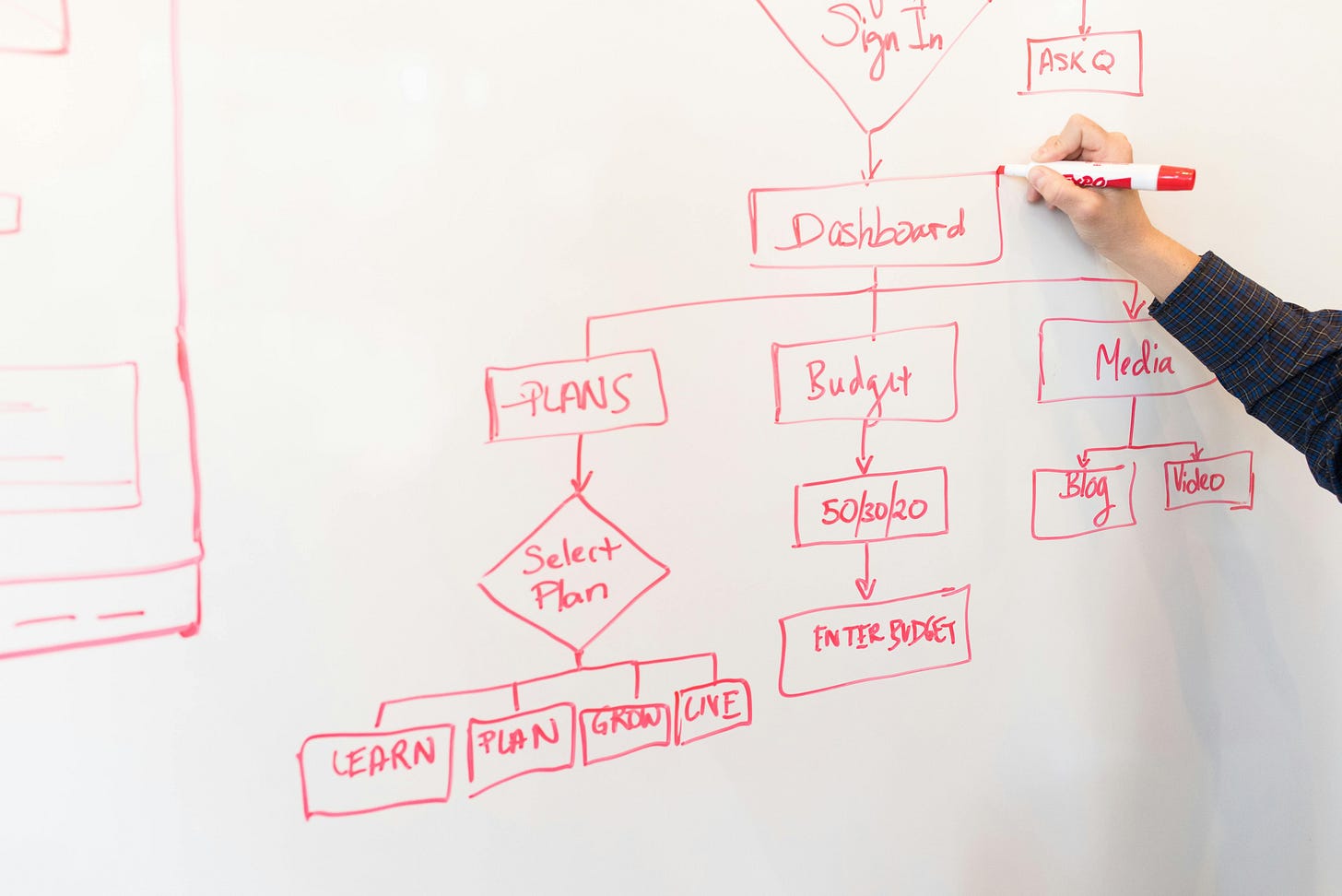A Dangerous Obsession
Market prediction: the cost of chasing certainty in an uncertain world. A story of ego and repeated failure
One of the great unsolved mysteries of financial consulting is forecasting. It is a recurring theme, a question that many investors, especially those who are inexperienced or new to the game, ask themselves obsessively. What will the market be like in the coming months? What will the S&P500 do tomorrow? Is the Nasdaq close to a correction? Will oil prices rise? Will EuroDollar weaken? On closer inspection, the real question behind these formulations is another: can I sleep peacefully? Can I rely on someone to tell me how things will turn out, so that I can protect myself from losses, mistakes and regrets?
Many people seek this security. Some look for it in a consultant, others in software, others in a course, an indicator, an algorithm, or «a newsletter that is often right». It is the quest for the holy grail of the market, mysterious key that should reveal what will happen in a week, a month, a year. But the more you try to grasp this illusion, the more it dissolves. Anyone who has spent enough time on the markets knows how impossible it is to predict price movements in a systematic and replicable way. We are not talking about sporadic insights or strokes of luck: those exist, and they are precisely what makes everything more dangerous. When you convince yourself that getting it right once means you have discovered the right formula, you risk building a false belief on it. A belief can become dangerous, especially when it leads to increased exposure, overestimating one's abilities, and ignoring signs of caution. That’s the heart of the problem.

Uno dei grandi enigmi irrisolti della consulenza finanziaria è quello delle previsioni. È un tema che ritorna costantemente, una domanda che molti investitori, soprattutto quelli inesperti o alle prime armi, si pongono in modo ossessivo. Come sarà il mercato nei prossimi mesi? Cosa farà l’S&P500 domani? Il Nasdaq è vicino a una correzione? Il petrolio salirà? L’EuroDollaro si indebolirà? A ben guardare, la domanda vera che si nasconde dietro queste formulazioni è un’altra: posso dormire tranquillo? Posso affidarmi a qualcuno che mi dica come andranno le cose, così da proteggermi da perdite, errori, rimpianti?
In tanti cercano questa sicurezza. Alcuni la inseguono in un consulente, altri in un software, altri ancora in un corso, un indicatore, un algoritmo, «una newsletter che ci prende spesso». È la rincorsa al sacro Graal del mercato, quella chiave misteriosa che dovrebbe rivelare cosa accadrà tra una settimana, un mese, un anno. Ma più si cerca di afferrare questa illusione, più essa si dissolve. Chiunque abbia passato abbastanza tempo sui mercati sa quanto sia impossibile prevedere l’andamento dei prezzi in modo sistematico e replicabile. Non parliamo di intuizioni sporadiche o di colpi di fortuna: quelle esistono, e sono proprio ciò che rende tutto più pericoloso. Quando ci si convince che averci preso una volta equivalga ad aver scoperto la formula giusta, il rischio è quello di costruirci sopra una convinzione fallace. Una convinzione che può diventare pericolosa, soprattutto quando porta ad aumentare l'esposizione, a sovrastimare le proprie capacità, a ignorare i segnali di prudenza. Il cuore del problema è tutto qui.
Trust the process
The market doesn’t behave in a linear fashion. It is not enough to read a positive quarterly report to expect a stock to rise, nor is bad news enough to justify a crash. What drives prices is not only reality, but collective perception, interpretation and expectations. Prices are ultimately the result of millions of simultaneous decisions made by investors around the world, who react in real time to an immense amount of information, much of which is completely inaccessible. Although there is a very precise and evident underlying mathematical structure behind price movements, for those who try to reduce this complexity with statistical models, algorithms or simulations, it is merely an exercise in style. Of course, that's fine: there is dignity and rigour in every attempt to better understand the market, but the mistake arises when analysis is confused with prediction, because observing doesn’t mean anticipating, and studying the past doesn’t mean reading the future. Finance, unlike physics, is not an exact science. There are no immutable laws, no mathematical certainties, not even a fixed point of equilibrium. So we return to the initial question: is it possible to predict the stock market?
The answer, for those who have done this job seriously and honestly, is no. Not only is it not possible, it is misleading, illusory and very often harmful. It is precisely the attempt to predict that leads many investors to overreact, chase the news and act on impulse. It is the obsession with prediction transforms asset management into a continuous attempt to «beat the market», to rebalance after a news item, after Trump's words or Federal Reserve or European Central Bank's decision on interest rates or whatever, as if it were a game to be won rather than a process to be gone through.
Abbiate fiducia nel processo
Il mercato non si comporta in modo lineare. Non basta leggere una trimestrale positiva per aspettarsi che un titolo salga, né basta una cattiva notizia per giustificare un crollo. Ciò che muove i prezzi non è solo la realtà, ma la percezione collettiva, l’interpretazione, le aspettative. I prezzi, in fondo, sono il frutto di milioni di decisioni simultanee prese da investitori di tutto il mondo, che reagiscono in tempo reale a una mole immensa di informazioni, molte delle quali del tutto inaccessibili. Sebbene dietro il movimento dei prezzi ci sia una struttura matematica sottostante molto precisa ed evidente, per chi prova a ridurre questa complessità con modelli statistici, algoritmi o simulazioni è solo un esercizio di stile. Per carità, va benissimo: c’è dignità e rigore in ogni tentativo di capire meglio il mercato, ma l’errore nasce quando si confonde l’analisi con la previsione, perchè osservare non significa anticipare e studiare il passato non significa leggere il futuro. La finanza, a differenza della fisica, non è una scienza esatta. Non esistono leggi invariabili, non esistono certezze matematiche, non esiste nemmeno un punto di equilibrio fisso. E allora si torna alla domanda iniziale: prevedere in Borsa è possibile?
La risposta, per chi ha fatto questo mestiere con serietà e onestà, è no. Non solo non è possibile: è fuorviante, illusorio, e molto spesso dannoso. È proprio il tentativo di prevedere che porta molti investitori a muoversi troppo, a inseguire le notizie, ad agire di impulso. È l’ossessione per la previsione a trasformare la gestione patrimoniale in un tentativo continuo di «battere il mercato», ribilanciare dopo una notizia, dopo le parole di Trump o dopo la decisione della Federal Reserve o della Banca Centrale Europea sui tassi d’interesse or whatever, quasi fosse una partita da vincere, piuttosto che un processo da attraversare.
Don't follow trends, plan ahead
Over time, true investors change their approach. At first, they are fascinated by the idea of being able to predict the future, but then, slowly, they realize the key lies elsewhere. It lies in building a strategy that works even when everything goes differently from what we had imagined. It lies in patience, discipline, and ability to resist temptations and fleeting enthusiasm. Above all, it lies in not feeling compelled to always guess correctly. It is no coincidence that none of the great investors in history ever made their fortune with predictions. Warren Buffett did not become Warren Buffett because he predicted something; Ray Dalio built Bridgewater not by anticipating the market, but by developing a system capable of surviving any scenario. These and many others, in different ways, have built processes, accepted uncertainty, and embraced the idea that markets are unpredictable by definition.
But then, if we cannot predict, what can we do? We can plan. And planning, contrary to popular belief, is not a weak form of prediction, it is a structural alternative. While those who predict seek precision, those who plan seek resilience. Planning doesn’t say «I know where the market is going», but «whatever happens, I know what to do». This is the big difference, and it is not just technical, it is mental and emotional. It is a form of maturity that comes only with time and experience. Planning doesn’t mean giving up ambition, but channelling it into a more realistic framework. It means knowing that the unexpected will happen and deciding in advance how to react. It means stopping chasing absolute control and starting to manage uncertainty with awareness.
Non seguire le mode, pianifica
Nel corso del tempo, i veri investitori cambiano pelle. All’inizio si lasciano affascinare dall’idea di poter prevedere, poi, lentamente, comprendono che la forza sta altrove. Sta nella costruzione di una strategia che funziona anche quando tutto va diversamente da come avevamo immaginato. Sta nella pazienza, nella disciplina, nella capacità di resistere alle tentazioni e agli entusiasmi passeggeri. Sta, soprattutto, nel non sentirsi costretti a indovinare sempre. Non a caso, nessuno dei grandi investitori della storia ha mai fatto fortuna con le previsioni. Warren Buffett non è diventato Warren Buffett perché ha previsto qualcosa; Ray Dalio ha costruito Bridgewater non anticipando il mercato, ma elaborando un sistema capace di sopravvivere a qualunque scenario. Questi e tantissimi altri, in modi diversi, hanno costruito processi, accettato l’incertezza, abbracciato l’idea che i mercati siano imprevedibili per definizione.
Ma allora, se non possiamo prevedere, cosa possiamo fare? Possiamo pianificare. E la pianificazione, contrariamente a quanto si crede, non è una forma debole di previsione, è un’alternativa strutturale. Mentre chi prevede cerca la precisione, chi pianifica cerca la resilienza. La pianificazione non dice «so dove andrà il mercato», ma dice: «qualunque cosa accada, io so cosa fare». Questa è la grande differenza e non è solo tecnica, è mentale ed emotiva. È una forma di maturità che arriva solo con il tempo e con l’esperienza. Pianificare non significa rinunciare all’ambizione, ma incanalarla dentro una cornice più realistica. Significa sapere che l’imprevisto arriverà, e decidere in anticipo come reagire. Significa smettere di inseguire il controllo assoluto, e iniziare a gestire l’incertezza con consapevolezza.
Process + planning = awareness
There is something liberating, almost therapeutic, about saying «I don't know» and I can't even imagine it. One of the first things I say to my clients or anyone who asks me for advice is very clear and simple: If you got in touch and ask me what stock, currency or index will do, you've come to the wrong person. And I'll go even further: if someone comes to you in the future to «advise» you to buy X, Y or Z, know that 99.9% of time they are selling you something because their boss has told them to «sell this or, sell that product». Unfortunately, the world of financial advice is littered with sellers of mattresses, pots and pans and vacuum cleaners, with all due respect to those who do it. In my humble opinion, those who sell advice or approach people for wealth management should do so in the least invasive way possible, respecting the client's timing and decisions, even at the cost of missing some budget targets that every network, bank and intermediary has.
No one knows whether the ECB will cut rates again or whether there will be a new recession. No one knows whether Artificial Intelligence will replace us in the coming years, whether technology is overrated or whether the emerging market cycle has really begun, but I know what I have built. I know what my goals are, I know how much risk I can bear and I know that I don't need to guess to be successful. Ultimately, moving away from the logic of forecasting is the first step towards becoming truly informed investors and also the first act of humility.
The markets, with their unpredictability, remind us every day that we are not masters of the future, but at the same time, they offer us the chance to prosper even without knowing it, as long as we have the courage to change our perspective. The real question is not what market will do tomorrow, but what we will do if it does something we didn’t expect. That’s where the game is played: and where the difference is measured between those who continue to chase mirages and those who have chosen, once and for all, to build something that lasts.
Processo + pianificazione = consapevolezza
C’è qualcosa di liberatorio, quasi terapeutico, nel dire «non lo so» e non lo posso nemmeno immaginare. Una delle mie prime frasi che dico ai miei clienti o chiunque mi chieda una consulenza è molto chiara e semplice: se mi hai contattato per chiedermi cosa farà l’azione X, il titolo Y o l’indice Z, hai sbagliato persona. E rincaro la dose: se qualcuno verrà in futuro da te per «consigliarti» l’acquisto di X, Y o Z sappi che al 99.9% ti starà vendendo qualcosa perché il loro capo gli avrà detto «vendi questo, vendi quel prodotto». Purtroppo il mondo della consulenza finanziaria è costellato da venditori di materassi, pentole e aspirapolvere, con tutto il rispetto per chi lo fa. Chi vende consulenza o comunque chi approccia alle persone per la cura del patrimonio, a mio modestissimo parere lo deve fare nel modo meno invasivo possibile, rispettando i tempi e le decisioni del cliente, anche a costo di mancare qualche target di budget, che ogni rete, banca, intermediario ha.
Nessuno sa se la BCE taglierà ancora i tassi o se ci sarà una nuova recessione. Nessuno sa se l’Intelligenza Artificiale ci sostituirà nei prossimi anni, se la tecnologia è sopravvalutata o se il ciclo dei mercati emergenti è davvero iniziato, ma so cosa ho costruito. So quali sono i miei obiettivi, so quanto rischio posso sopportare e so che non ho bisogno di indovinare per avere successo. Alla fine, uscire dalla logica della previsione è il primo passo per diventare investitori davvero consapevoli e anche il primo atto di umiltà.
I mercati, con la loro imprevedibilità, ci ricordano ogni giorno che non siamo padroni del futuro, ma ci offrono, allo stesso tempo, la possibilità di prosperare anche senza saperlo, a patto di avere il coraggio di cambiare prospettiva. La vera domanda non è cosa farà il mercato domani, ma cosa faremo noi se farà qualcosa che non ci aspettavamo. È lì che si gioca la partita: ed è lì che si misura la differenza tra chi continua a inseguire miraggi e chi ha scelto, una volta per tutte, di costruire qualcosa che duri.





Succinct Summation of Human Behaviour